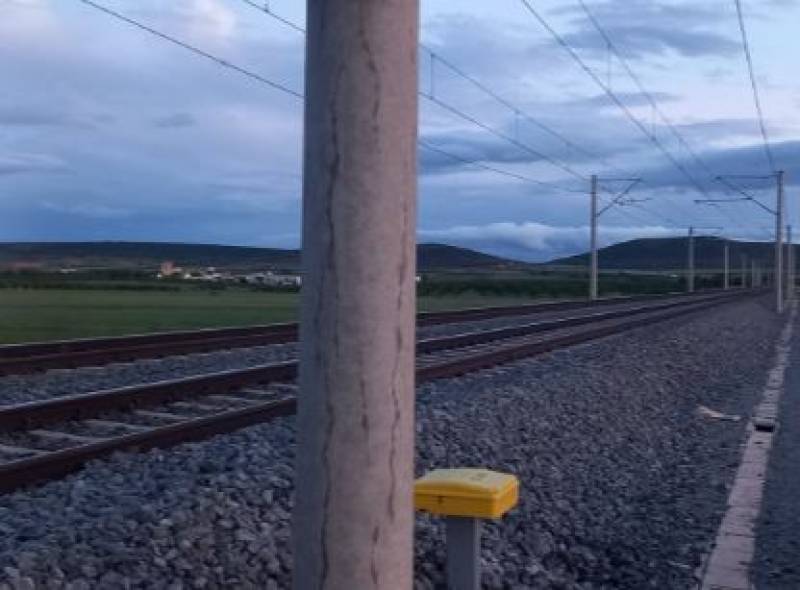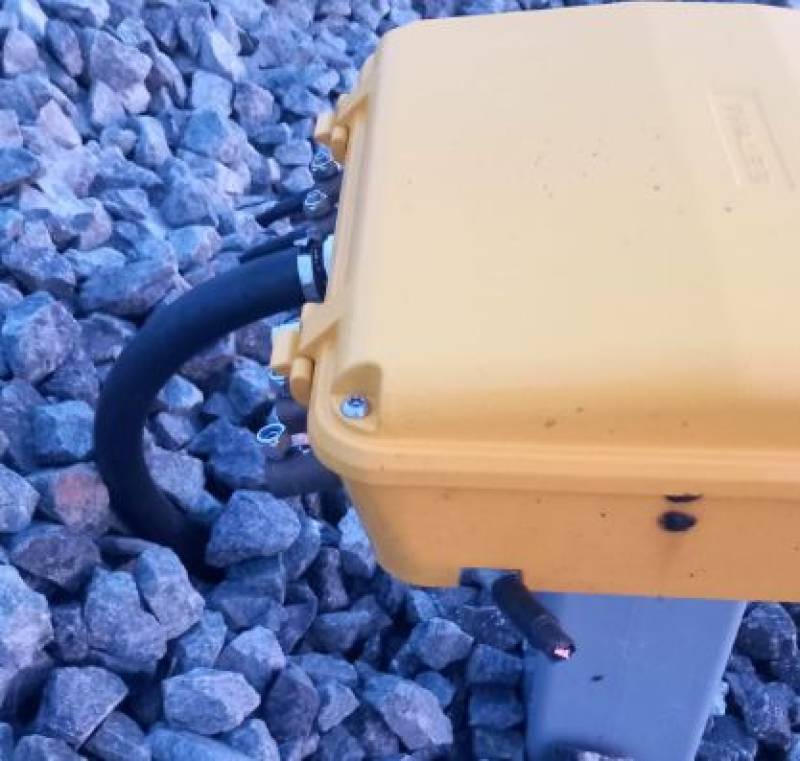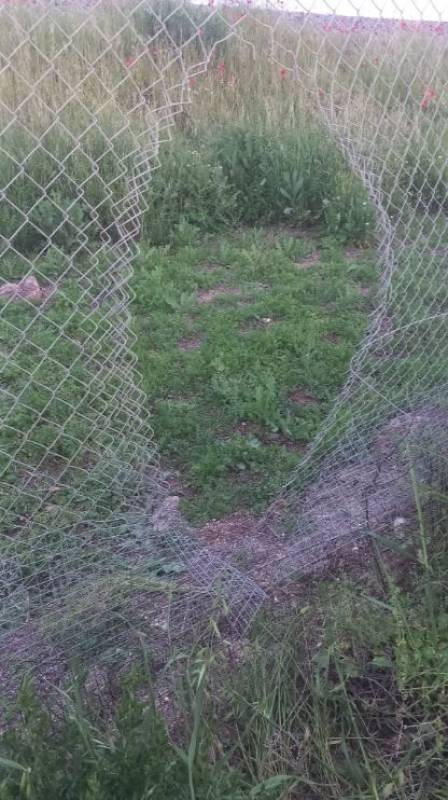- Region
- Vega baja
- Marina Alta
- Marina Baixa
- Alicante
- Baix Vinalopo
- Alto & Mitja Vinalopo
-
ALL TOWNS
- ALICANTE TOWNS
- Albatera
- Alfaz Del Pi
- Alicante City
- Alcoy
- Almoradi
- Benitatxell
- Bigastro
- Benferri
- Benidorm
- Calosa de Segura
- Calpe
- Catral
- Costa Blanca
- Cox
- Daya Vieja
- Denia
- Elche
- Elda
- Granja de Rocamora
- Guardamar del Segura
- Jacarilla
- Los Montesinos
- Orihuela
- Pedreguer
- Pilar de Horadada
- Playa Flamenca
- Quesada
- Rafal
- Redovan
- Rojales
- San Isidro
- Torrevieja
- Comunidad Valenciana
Date Published: 06/05/2025
Madrid-Andalucía AVE trains return to normal after 10,000 passengers affected by cable theft
The government is blaming a professional sabotage attempt after the theft of copper cabling caused railway chaos this Monday

The theft of copper cable from the AVE high-speed rail line between Madrid and Andalucía triggered transport disruption on a massive scale this Monday May 5, with more than 10,000 passengers stranded across major stations.
Rather than a mere case of theft to sell scrap metal, authorities now suspect deliberate sabotage, and investigations are underway.
The Guardia Civil is investigating the theft, which occurred on Sunday May 4 across five points in the province of Toledo, three in Los Yébenes and two in Manzaneque. All locations were remote and accessible only by forest tracks.
 The vandals targeted five or six security boxes containing up to six metres of copper wire each. The total theft amounted to about 150 metres of cable, equivalent to roughly 128 kilos, and worth only around €300 on the scrap market.
The vandals targeted five or six security boxes containing up to six metres of copper wire each. The total theft amounted to about 150 metres of cable, equivalent to roughly 128 kilos, and worth only around €300 on the scrap market.Despite its low financial value, the theft severely disrupted railway safety systems, forcing trains to reduce their speed to just 40kmh. The Minister for Transport, Óscar Puente, visited the affected area and referred to the incident as “serious sabotage”.
He stated that the perpetrators “knew what they were doing”, highlighting the absence of security cameras and the strategic timing during the return of the May bank holiday.
Travel chaos this Monday
By 9am on Monday, limited services had already resumed between Madrid and Toledo, with the first train to Málaga leaving Atocha at 9.40am. Full operations were gradually restored by midday, though only 70% of services were functional at that time. Adif and Renfe had worked overnight under what the Ministry called “very complex conditions”.
Nonetheless, hundreds of passengers faced lengthy queues and delays of over two hours at Madrid’s Atocha station. Many had spent the night there, with police setting up a cordon and using megaphones to call passengers for boarding. Renfe urged passengers not to arrive before 8am due to ongoing disruptions, but that did little to reduce congestion.
Santa Justa station in Seville also saw long queues and rising frustration. Renfe staff and National Police struggled to manage crowds, while customer service desks were overwhelmed.
Just as services began to stabilise, another setback occurred in the afternoon. A signalling fault near Almodóvar del Río in Córdoba led to additional delays averaging 25 minutes. By late afternoon, Adif confirmed the issue was resolved and high-speed train circulation was returning to normal.
“They knew what they were doing”
Minister Puente maintained that the nature of the incident points strongly towards sabotage rather than theft for economic gain. The type of cable stolen – copper for safety and signalling – has limited resale value. Experts estimate the maximum profit from the stolen material at under €1,000, especially when sold to unscrupulous or illegal scrap dealers.
 The presumed thieves cut through the chain link fence in the affected area and removed cabling from tracks and signalling boxes using cutters.
The presumed thieves cut through the chain link fence in the affected area and removed cabling from tracks and signalling boxes using cutters.Copper theft is not uncommon in Spain and often linked to organised crime networks that resell material to operators in countries such as China. Legal recycling centres are required to verify the source of copper but compliance varies, allowing illicit trade to persist.
This latest incident comes after suspicions that last week’s major blackout across Spain was also caused deliberately by malicious actors. An investigation is currently underway to determine the causes of the blackout.
In the wake of the travel chaos this Monday, Minister Puente acknowledged the need to reinforce security along critical stretches of railway infrastructure. “We will see if this robbery had an economic interest or another kind, but everything points to a deliberate act,” he said.
Passenger rights and how to claim compensation if you were affected
Renfe passengers affected by the delays can request compensation through the Complaints section of the company’s website and completing the relevant form.
There are different kinds of refunds available on Renfe AVE trains depending on how late they arrived at their destination:
- For delays between 60 and 90 minutes: 50% refund
- For delays over 90 minutes: 100% refund
Claims must be filed within three months, and passengers should retain their tickets and any related receipts, especially for additional expenses such as hotel stays.
Iryo, the other rail company affected during the disruption, also offers:
- 50% compensation for delays of 60 minutes
- 100% for delays over 90 minutes
Claims must be submitted after 48 hours and can be refunded via voucher or original payment method. See the ‘Claims’ section of the Iryo website for instructions.
While Iryo denied worsening the situation, saying its train halted due to a lack of power in the catenary, the Ministry confirmed one of its trains became stuck, adding to delays.
Images: Óscar Puente
staff.inc.ali
Loading
Sign up for the Spanish News Today Editors Roundup Weekly Bulletin and get an email with all the week’s news straight to your inbox
Special offer: Subscribe now for 25% off (36.95 euros for 48 Bulletins)
OR
you can sign up to our FREE weekly roundup!
Read some of our recent bulletins:
Discount Special Offer subscription:
36.95€ for 48 Editor’s Weekly News Roundup bulletins!
Please CLICK THE BUTTON to subscribe.
(List price 3 months 12 Bulletins)
Read more stories from around Spain:
Contact Murcia Today: Editorial 000 000 000 /
Office 000 000 000




















